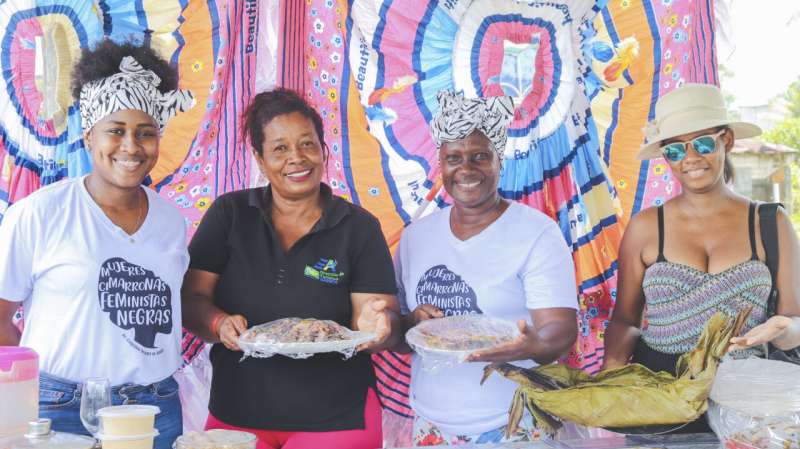Research documents rich heritage of Afro-descendant women living in Ecuador

Celebrating and sharing the lived history of Afro-Ecuadorian women, passed down through generations via the spoken word, is the objective of a collaborative research project led by Northumbria University and Universidad San Francisco de Quito in Ecuador, alongside partners from the Mujeres de Asfalto collective, a Black feminist creative arts organization.
Over the last three years, researchers from the three partner organizations have worked together to explore, document and celebrate the heritage of black and Afro women living across the Esmeraldas province in the South American country.
Esmeraldas has the highest percentage of Afro-descendant population in Ecuador. Many face poverty and marginalization and the basic needs of 57 percent of people are unmet. Outside of the province capital, this number is over 80 percent. Just weeks after an earthquake left thousands in the province homeless, growing violence related to drug trafficking gangs led the national government to announce a "state of exception" in Esmeraldas, which was in place between April and June this year, and introduced again on November 1.
Professor Katy Jenkins from Northumbria University, who has led with project, said, "In this context of violence and precarity, it is more important than ever to recognize not just the unique and complicated struggles Afro-descendant women face, but also to provide a platform for their historically excluded knowledge, practices and visions for alternative development."
"The Afro-descended community in Esmeraldas suffer negative impacts from the extraction of natural resources from the environment they live in, alongside high levels of gendered violence, with very few positive representations of black and Afro women, who are often completely invisible. The focus of this research has been to make a contribution towards amplifying their rich culture and identity and making sure it is recognized and valued."
The RECLAMA project has involved training 16 Afro-Ecuadorian women as peer researchers. The peer researchers then carried out life history interviews to capture the knowledge of older generations living across different districts so that the stories can be recorded and made accessible as part of a permanent community archive.
During the 60 interviews, themes including dance, poetry and song, traditional dress, food and cookery, religious and spiritual practices all began to emerge. A series of photographs, documentaries and works of art have since been created to capture each theme.
Dr. Inge Boudewijn, postdoctoral researcher at Northumbria University, said, "Our partners, Universidad de San Francisco de Quito and the Mujeres de Asfalto collective, were always going to be key to project, but they have been even more crucial to carrying out the research on the ground due to the pandemic."
The team from Northumbria were able to travel to Ecuador for the first time recently to meet with their fellow researchers in person, rather than virtually. During their two-week visit, they were able to support the delivery of exhibitions in Esmeraldas and Quito, where the creative research outcomes were shared with the public. Professor Jenkins and Dr. Boudewijn also attended a one-day research symposium, held research talks at Ecuadorian universities, and shared news of the research with local and national media outlets.
The RECLAMA project research findings have also been shared with national and international dignitaries, including the Mayoress of Esmeraldas and the British Ambassador in Ecuador.
Juana Francis Bone, director of the Mujeres de Asfalto collective, said, "Grabbing hold of our history in this moment is the only way to mark out a better future. They have always denied us our history, and I believe that telling it resignifies it, so that we become the narrators and protagonists of our own history."
A research paper inspired by the project has been published in History.
More information: Hilary Francis et al, Decolonising Oral History: A Conversation, History (2021). DOI: 10.1111/1468-229X.13141
Provided by Northumbria University





















